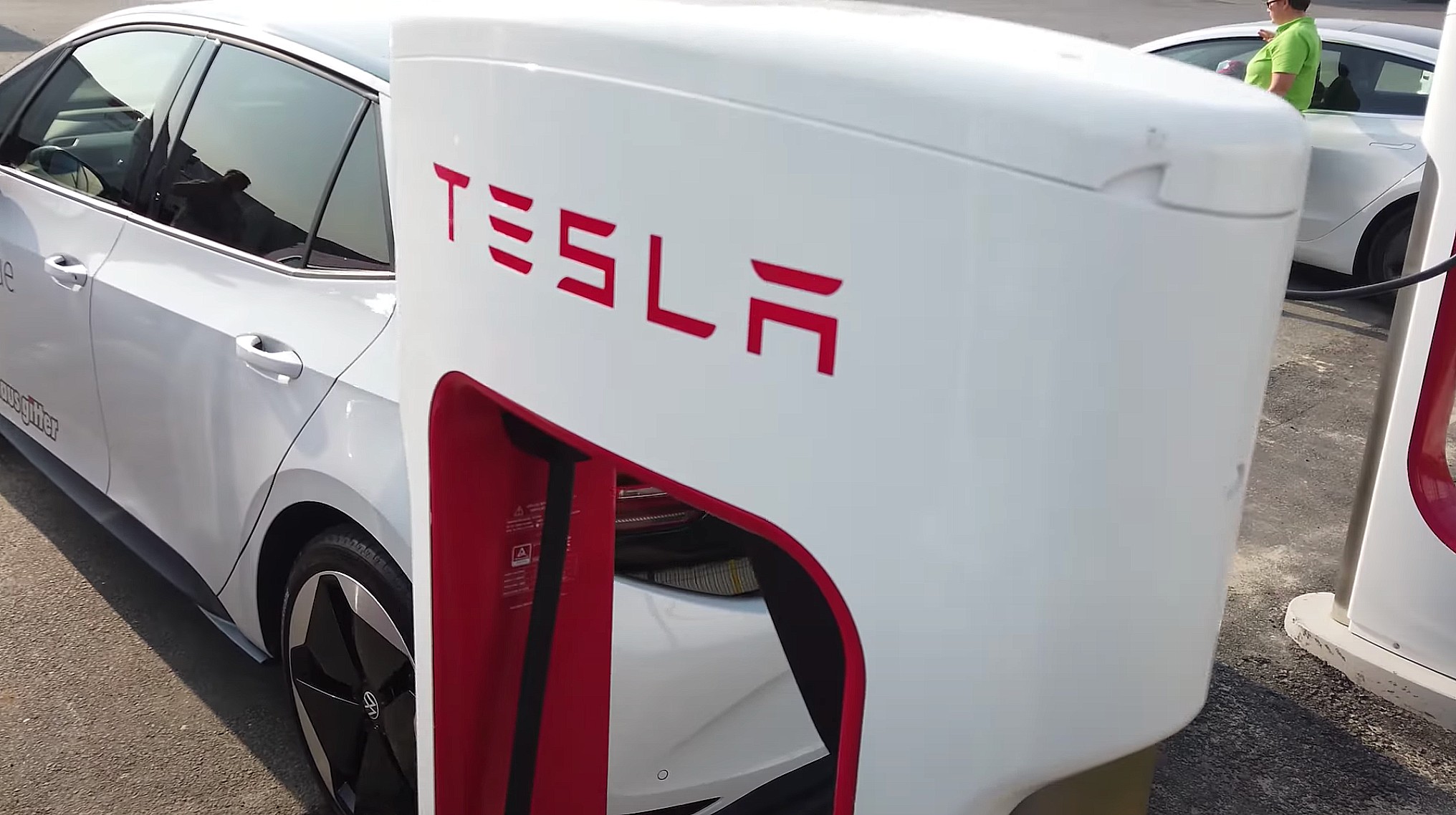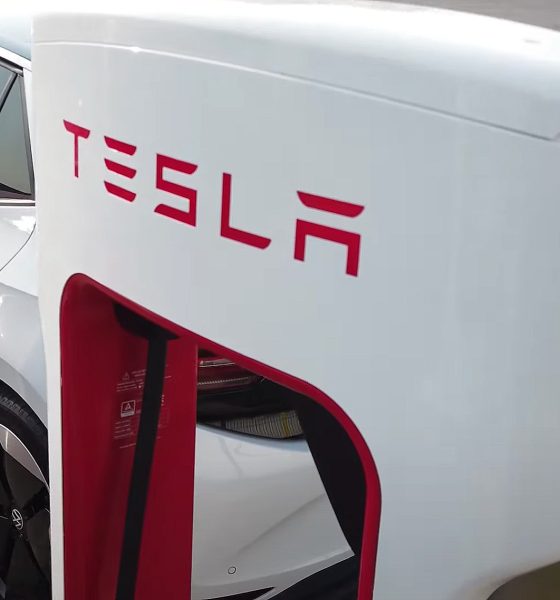Tesla is being urged by German Federal Minister of Transport Andreas Scheuer to unlock the company’s Superchargers for all electric vehicles, regardless of manufacturer. The move would give every EV on the road access to the broadest, well-rounded, and most efficient EV charging network in the world.
Tesla’s Supercharging network is among the most robust and complete in the world. With over 25,000 global Superchargers that give charging speeds as fast as 250 kW to Tesla’s industry-leading EVs, the company has established itself as the most well-rounded in terms of the product and the charging mechanisms that it provides.
The Superchargers are only compatible with Tesla vehicles currently, basically giving owners an extra incentive to buy one of the company’s vehicles instead of a competitor. When buying a Tesla, you won’t only get the best car in terms of performance, range, and efficiency, but you will also have access to the widest selection of Superchargers in the world.
Tesla’s North American Supercharging locations. (Credit: Tesla)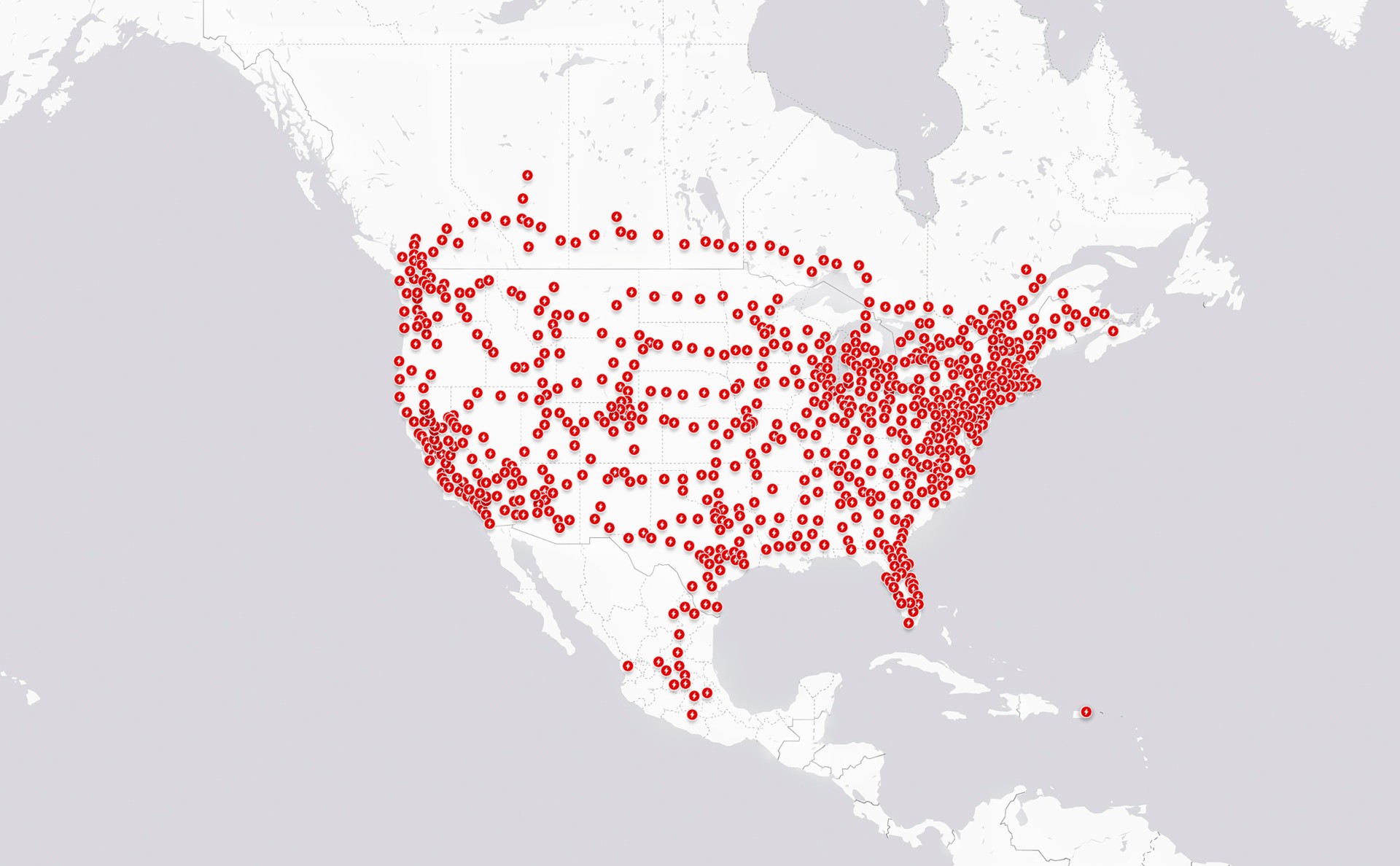
However, some are critical of the idea that Tesla keeps these chargers exclusive to their owners. While it gives Tesla a competitive advantage over other EV manufacturers, it limits the options for other cars. Some see it as a financial disadvantage for Tesla as it could make the company more money when vehicles made by other OEMs choose to get more range at a Tesla Supercharger.
Scheuer, who has held the Office of Federal Minister of Transport since 2018, said that he believes the company should open up its Superchargers to other cars, a move that could accelerate the adoption of electric vehicles everywhere.
In a recent interview with German media outlet Neue Osnabrücker Zeitung, Scheuer said (via ecomento.de):
“I am in direct contact with manufacturers like Tesla to ensure that the existing infrastructure, for example, Tesla Supercharger, is also opened for other manufacturers.”
Scheuer said there are still technical concerns that need to be answered, such as how the drivers will pay for the system. He suggested a uniform Smartphone application that will work universally with EV chargers from all manufacturers. Whichever way it works out, he said he expects a solution to be found.
The electric vehicle industry has come a long way in the past several years, according to Scheuer. When discussing the overall e-mobility package, including the vehicle, the charging infrastructure, the network, and users, he said that it has become better over the past few years. Scheuer added:
“There is still a long way to go so that not every electric car trip becomes an adventure, but a new normal. That is the goal. And we’re getting closer to that with great strides.”
Tesla CEO Elon Musk has talked about opening up universal usage of Tesla Superchargers on several occasions in the past. The latest comment Musk made on the subject was in December 2020, when he said:
They are, although it’s kind low-key. Tesla Superchargers are being made accessible to other electric cars.
— Elon Musk, the 2nd (@elonmusk) December 21, 2020
Some electric cars were already using Tesla Superchargers in September 2020, but a bug was the reason for the loophole, and Tesla quickly fixed it.

News
Tesla adds a new feature to Navigation in preparation for a new vehicle
After CEO Elon Musk announced earlier this week that the Semi’s mass production processes were scheduled for later this year, the company has been making various preparations as it nears manufacturing.
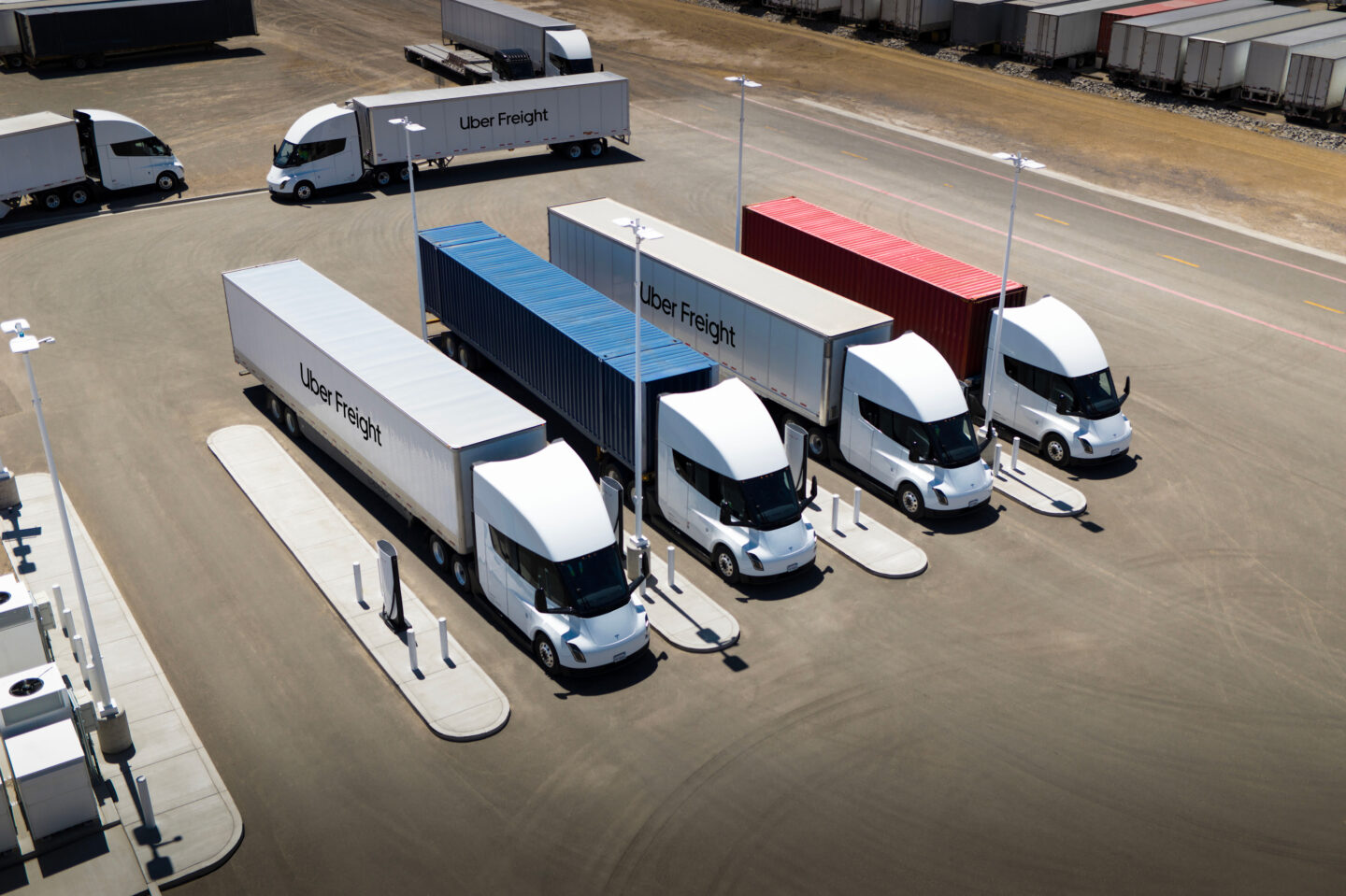
Tesla has added a new feature to its Navigation and Supercharger Map in preparation for a new vehicle to hit the road: the Semi.
After CEO Elon Musk announced earlier this week that the Semi’s mass production processes were scheduled for later this year, the company has been making various preparations as it nears manufacturing.
Elon Musk confirms Tesla Semi will enter high-volume production this year
One of those changes has been the newly-released information regarding trim levels, as well as reports that Tesla has started to reach out to customers regarding pricing information for those trims.
Now, Tesla has made an additional bit of information available to the public in the form of locations of Megachargers, the infrastructure that will be responsible for charging the Semi and other all-electric Class 8 vehicles that hit the road.
Tesla made the announcement on the social media platform X:
We put Semi Megachargers on the map
→ https://t.co/Jb6p7OPXMi pic.twitter.com/stwYwtDVSB
— Tesla Semi (@tesla_semi) February 10, 2026
Although it is a minor development, it is a major indication that Tesla is preparing for the Semi to head toward mass production, something the company has been hinting at for several years.
Nevertheless, this, along with the other information that was released this week, points toward a significant stride in Tesla’s progress in the Semi project.
Now that the company has also worked toward completion of the dedicated manufacturing plant in Sparks, Nevada, there are more signs than ever that the vehicle is finally ready to be built and delivered to customers outside of the pilot program that has been in operation for several years.
For now, the Megachargers are going to be situated on the West Coast, with a heavy emphasis on routes like I-5 and I-10. This strategy prioritizes major highways and logistics hubs where freight traffic is heaviest, ensuring coverage for both cross-country and regional hauls.
California and Texas are slated to have the most initially, with 17 and 19 sites, respectively. As the program continues to grow, Florida, Georgia, Illinois, Washington, New York, and Nevada will have Megacharger locations as well.
For now, the Megachargers are available in Lathrop, California, and Sparks, Nevada, both of which have ties to Tesla. The former is the location of the Megafactory, and Sparks is where both the Tesla Gigafactory and Semifactory are located.
Elon Musk
Tesla stock gets latest synopsis from Jim Cramer: ‘It’s actually a robotics company’
“Turns out it’s actually a robotics and Cybercab company, and I want to buy, buy, buy. Yes, Tesla’s the paper that turned into scissors in one session,” Cramer said.

Tesla stock (NASDAQ: TSLA) got its latest synopsis from Wall Street analyst Jim Cramer, who finally realized something that many fans of the company have known all along: it’s not a car company. Instead, it’s a robotics company.
In a recent note that was released after Tesla reported Earnings in late January, Cramer seemed to recognize that the underwhelming financials and overall performance of the automotive division were not representative of the current state of affairs.
Instead, we’re seeing a company transition itself away from its early identity, essentially evolving like a caterpillar into a butterfly.
The narrative of the Earnings Call was simple: We’re not a car company, at least not from a birds-eye view. We’re an AI and Robotics company, and we are transitioning to this quicker than most people realize.
Tesla stock gets another analysis from Jim Cramer, and investors will like it
Tesla’s Q4 Earnings Call featured plenty of analysis from CEO Elon Musk and others, and some of the more minor details of the call were even indicative of a company that is moving toward AI instead of its cars. For example, the Model S and Model X will be no more after Q2, as Musk said that they serve relatively no purpose for the future.
Instead, Tesla is shifting its focus to the vehicles catered for autonomy and its Robotaxi and self-driving efforts.
Cramer recognizes this:
“…we got results from Tesla, which actually beat numbers, but nobody cares about the numbers here, as electric vehicles are the past. And according to CEO Elon Musk, the future of this company comes down to Cybercabs and humanoid robots. Stock fell more than 3% the next day. That may be because their capital expenditures budget was higher than expected, or maybe people wanted more details from the new businesses. At this point, I think Musk acolytes might be more excited about SpaceX, which is planning to come public later this year.”
He continued, highlighting the company’s true transition away from vehicles to its Cybercab, Optimus, and AI ambitions:
“I know it’s hard to believe how quickly this market can change its attitude. Last night, I heard a disastrous car company speak. Turns out it’s actually a robotics and Cybercab company, and I want to buy, buy, buy. Yes, Tesla’s the paper that turned into scissors in one session. I didn’t like it as a car company. Boy, I love it as a Cybercab and humanoid robot juggernaut. Call me a buyer and give me five robots while I’m at it.”
Cramer’s narrative seems to fit that of the most bullish Tesla investors. Anyone who is labeled a “permabull” has been echoing a similar sentiment over the past several years: Tesla is not a car company any longer.
Instead, the true focus is on the future and the potential that AI and Robotics bring to the company. It is truly difficult to put Tesla shares in the same group as companies like Ford, General Motors, and others.
Tesla shares are down less than half a percent at the time of publishing, trading at $423.69.
Elon Musk
SpaceX secures win as US labor board drops oversight case
The NLRB confirmed that it no longer has jurisdiction over SpaceX.
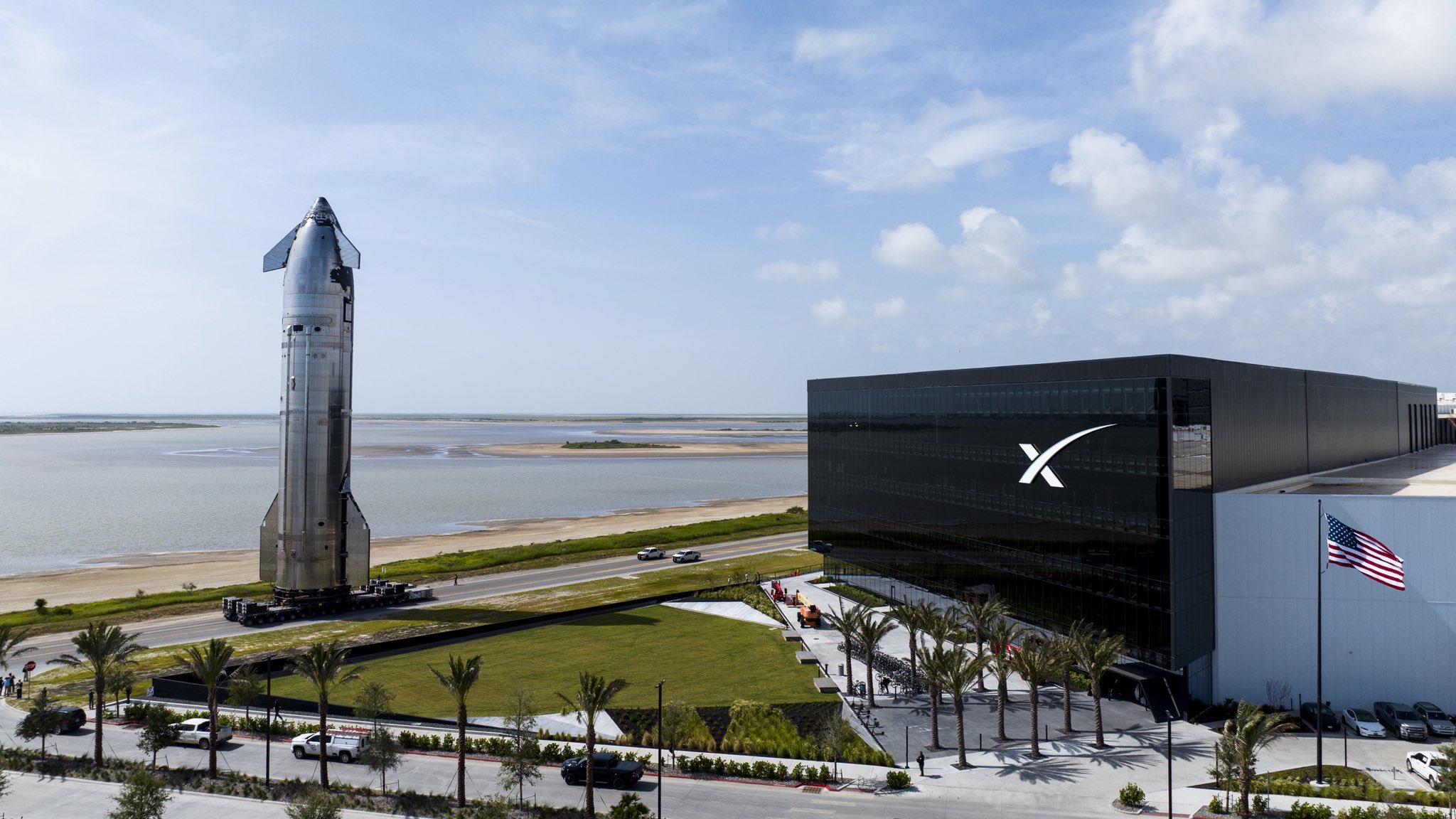
SpaceX scored a legal victory after the National Labor Relations Board (NLRB) decided to dismiss a case which accused the company of terminating engineers who were involved in an open letter against founder Elon Musk.
The NLRB confirmed that it no longer has jurisdiction over SpaceX. The update was initially shared by Bloomberg News, which cited a letter about the matter it reportedly reviewed.
In a letter to the former employees’ lawyers, the labor board stated that the affected employees were under the jurisdiction of the National Mediation Board (NMB), not the NLRB. As a result, the labor board stated that it was dismissing the case.
As per Danielle Pierce, a regional director of the agency, “the National Labor Relations Board lacks jurisdiction over the Employer and, therefore, I am dismissing your charge.”
The NMB typically oversees airlines and railroads. The NLRB, on the other hand, covers most private-sector employers, as well as manufacturers such as Boeing.
The former SpaceX engineers have argued that the private space company did not belong under the NMB’s jurisdiction because SpaceX only offers services to “hand-picked customers.”
In an opinion, however, the NMB stated that SpaceX was under its jurisdiction because “space transport includes air travel” to get to outer space. The mediation board also noted that anyone can contact SpaceX to secure its services.
SpaceX had previously challenged the NLRB’s authority in court, arguing that the agency’s structure was unconstitutional. Jennifer Abruzzo, the NLRB general counsel under former United States President Joe Biden, rejected SpaceX’s claims. Following Abruzzo’s termination under the Trump administration, however, SpaceX asked the labor board to reconsider its arguments.
SpaceX is not the only company that has challenged the constitutionality of the NLRB. Since SpaceX filed its legal challenge against the agency in 2024, other high-profile companies have followed suit. These include Amazon, which has filed similar cases that are now pending.
